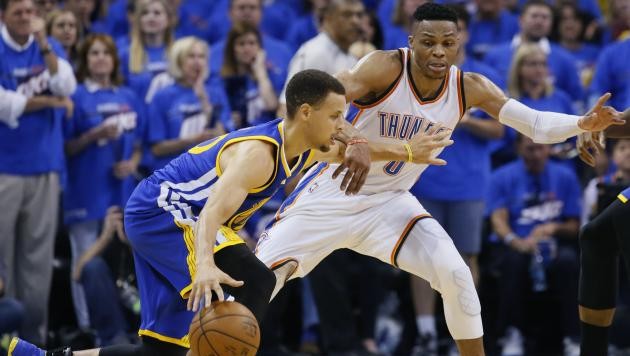It’s not an original observation, but it’s the main observation which should be advanced at this point in the NBA playoffs: The 2016 postseason is shattering our perceptions of the league and its balance of power.
The power of the statement lies not in any relevatory quality — the revelations taking place on the court speak for themselves — but in the severity of the developments unfolding before our eyes.
It’s not that the Golden State Warriors are losing; it’s that they won 73 games and are being dismantled. A 65-win team losing in seven games is one thing; this is a singularly remarkable regular season team being reduced to fine powder in the face of a thriving 55-win opponent. A series involving an 18-win difference between the two teams is indeed lopsided… in favor of the team with 18 fewer wins.
You can see what’s being underlined here — not merely the disclosure of an upheaval in the existing NBA power structure, but the contours of that upheaval.
Let’s consider other dimensions of the severity of these playoffs, and how violently they’ve overturned the perceptions created during the regular season (or the first two rounds of the playoffs):
* The Golden State Warriors’ “Death Lineup” can be defeated with a small group of five (from Oklahoma City).
* The Oklahoma City Thunder, so noticeably frail in fourth quarters during the season — their plus-minus hundreds of points lower than the first three quarters — have become a lockdown terror in fourth quarters. OKC allowed only 16 to San Antonio in the fourth quarter of Game 4 and 19 in Game 5. The Thunder allowed just 14 fourth-quarter points to the Warriors in Game 1, only 12 in Game 4.
* DeMar DeRozan of the Toronto Raptors could not figure out how to play against either Indiana or Miami, but he’s regained an understanding of how to play against Cleveland, shooting within 15 feet instead of launching the 19- and 20-footers which drove his team (and fans) crazy in the first two rounds of the playoffs.
* A Toronto team carried by Jonas Valanciunas through the entire Indiana series and the first two-plus games of the Miami series — the Raptors would not have survived without him — has played better and executed better through four games against Cleveland than at any point in its two seven-game series against the Pacers and Heat. Valanciunas has not played a single second against the Cavs.
* Kevin Love seemed to be a reborn player through the first 10 games of the playoffs, embodying what David Griffin, Tyronn Lue and LeBron James had in mind for him. In the past two games, he disappeared.
* Cleveland, largely because of Love, but also because of the upside-down turns in the Kyrie Irving-Kyle Lowry matchup, has gone from “East juggernaut with a great chance to win the championship” to “having no chance in the Finals” in very short order… at least in the minds of many commentators.
* The Raptors, who labored so conspicuously and inelegantly over the course of 16 games — two seven-game series, plus the first two games against the Cavs — look more like their (best) regular season selves than at any prior point in the playoffs.
* Toronto has unexpectedly reacquired its regular season form to move within striking distance of the NBA Finals.
* Oklahoma City has unexpectedly shedded its regular season identity to move within one win of the NBA Finals.
* The 73-win team which captured America’s attention is not merely getting beaten, but thrashed.
* The team with LeBron James — winner of each of the last five Eastern Conference championships — and a healthier supporting cast relative to 2015 is struggling against an opponent which has not been able to play its starting center in each of the first four games of an East Finals series.
Anyone else have whiplash? I know I do. That’s what these playoffs have done. Let’s see what plot twists await over the next few days before the Finals.

